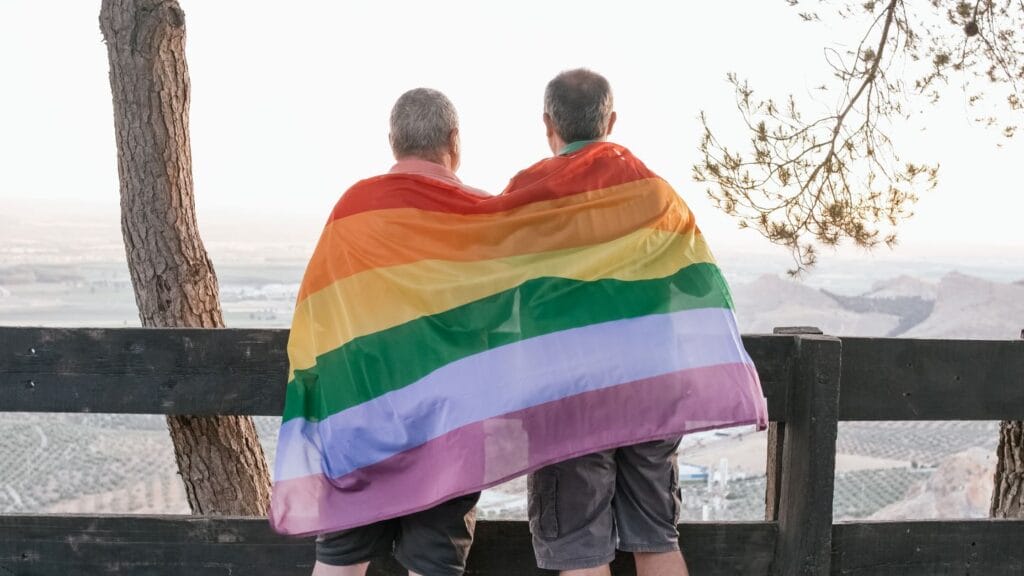
Personal identity plays a big role in Carey Candrian’s research. An associate professor of medicine-internal medicine at the University of Colorado School of Medicine who identifies as a lesbian, her work primarily focuses on the experiences of older LGBTQ+ adults in hospice care. This work is especially important today in the wake of increased violence towards the community and inconsistent legal protections in recent years.
She has found that older LGBTQ+ adults face unique obstacles that others may not understand. This is where the importance of knowledgeable, empathetic caregivers becomes so vital.
“One of the things that I come back to is to get to your end of life and not be able to be open about who you are and who you love,” Candrian told McKnight’s Home Care Daily Pulse. “I realized just how hard it was for hospice patients to speak up when they were sick, to speak up when they didn’t have anyone in the room and how much harder it was for LGBTQ people who have been historically stigmatized and trained to stay silent about these issues.”
Not only can this hesitancy have troubling social ramifications for patients, it also impacts the quality of care they receive. According to Candrian, a culture that continues to cast LGBTQ+ identity as taboo contributes to devastating health outcomes for the community.
“It’s a fundamental part of who we are and so if you’re not able to disclose your whole story, the care team is getting incomplete information, which means you’re going to get incomplete care,” said Candrian. “If I can’t talk about my partner, they might not offer her bereavement support or grief support. They might not include her if I’m not no longer able to make decisions. So it’s just this cyclical effect of how things can go wrong if we make assumptions about who someone is and who they love.”
Candrian believes allies are important in combating the normalization of anti-LGBTQ+ prejudice. Sometimes the smallest gestures can make the biggest difference in creating a friendly environment for members of the community, she says.
“When you’re part of the LGBTQ+ community, we look for any sign or symbol to know that people are safe,” said Candrian. “We have lanyards with little pins around our university and people can think those are silly or meaningless but they’re really critical because they send a signal that, ‘Hey, I’m safe. I’m OK with who you are, you can be yourself. So I think those signs and symbols go a really long way and it could be really small.”
Ultimately, policies can only do so much to prevent discrimination. Candrian believes that change starts at the individual level. Tolerating discrimination allows it to metastasize so it is imperative to take a stand, no matter how difficult it might be, she stresses.
“Without the policies, it’s really hard because there’s just tremendous amounts of room to discriminate,” said Candrian. “That’s why I think allies are so critical in all this too, for people to really start speaking up and breaking these habits to try to create real cultural change where discrimination is not tolerated.”
It is easy to get caught up in the hysteria whipped up by bad faith actors surrounding the LGBTQ+ community, Candrian points out. But at the end of the day, the mere existence of this community is not a religious or political issue to be debated, she emphasizes, but rather a human rights issue that deserves empathy and respect from everyone.
“I really don’t think there’s anything worse that can happen to someone from just a pure dignity perspective,” said Candrian. “I think we owe that as a society to really ensure that people can be who they are and be with who they need to at the end of life.”
Home Sweet Home is a feature appearing Mondays in McKnight’s Home Care Daily Pulse. The story focuses on a heartwarming, entertaining or quirky happening affecting the world of home care. If you have a topic that might be worthy of the spotlight in Home Sweet Home, please email [email protected].

